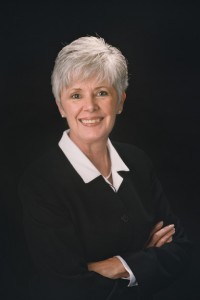

Sandy Praeger is approaching her final year as Kansas insurance commissioner with a national reputation for expertise on health care issues and a lengthy, unbroken string of election victories as a Republican in a GOP-leaning state.
But after winning three primaries and three general elections for the commissioner’s job by comfortable margins, Praeger acknowledges that she’d have trouble emerging from next year’s GOP primary. She wondered during an interview whether her endorsement would be toxic for any Republican seeking to replace her.
The reason is the unusual niche she’s carved for herself within the GOP on health care issues. She argues that the federal health care overhaul championed by President Barack Obama and his fellow Democrats was a positive step that could help millions of uninsured Americans and that, even with the problems with its administration, it’s an improvement.

Asked during a recent Associated Press interview about being among only a handful of prominent Republicans taking such a stance publicly, Praeger laughed and suggested there may be no others.
“I would be curious as to who they are, because I don’t know them,” she joked. Later, growing serious, she said, “It’s just the reality of the situation. I have been probably the most vocal Republican that has said this is better than what we had and we should try to make this work.”
Praeger is not seeking re-election next year and will have to step down in January 2015, after 12 years as the state’s insurance regulator. She’ll turn 70 next year, and her husband, Mark, a Lawrence physician, is retiring at the beginning of January. Praeger said both were key to her decision against running, but she acknowledged that she doesn’t have as much “fire” as she’d need to endure a tough statewide campaign.
“If I was 10 years younger, maybe,” Praeger said. “You know there’s a part of me that still has that little fight that I think, ‘Yeah, I should do it.’ But I just can’t.”
Praeger is a past president of the National Association of Insurance Commissioners and chairwoman of its committee on health insurance and managed care. But her stance on the 2010 federal health care law has kept officials in her home state’s Republican-dominated state government at a distance.
In 2011, GOP Gov. Sam Brownback’s administration returned a $31.5 million federal grant for setting up the computer infrastructure within Kansas for the state’s online insurance marketplace, a move pushed by conservative GOP legislators. In 2012, Brownback decided against having the state partner with the federal government on the health insurance marketplace in Kansas, going against Praeger’s advice.
State Senate Public Health and Welfare Committee Chairwoman Mary Pilcher-Cook, a conservative Shawnee Republican, said Praeger’s stance on the health overhaul has complicated work on issues surrounding it.
“It’s very difficult to get information that you feel you can trust,” Pilcher-Cook said.
Four Republicans have launched campaigns to replace Praeger, all critics of the federal health overhaul. They are Beverly Gossage of Eudora, director of a health insurance consulting company; David Powell, an El Dorado insurance agent; Ken Selzer, a Leawood accountant; and Kansas House Insurance Committee Chairman Clark Shultz of McPherson.
Praeger’s political career began in 1985, when she won a seat on the Lawrence City Commission. She served 12 years in the Legislature, most of them in the Senate, before winning the first of three, four-year terms as insurance commissioner in 2002.
As a legislator, she broke frequently with conservatives on issues such as abortion, taxes and education but still maintained solid GOP support for her statewide races. Over time, conservatives gained firm control over the party.
“I remember, even when I was in the Senate and you could see it beginning to move more conservative, I think we all thought, ‘Gosh, how much more conservative can it get?”‘ she said. “And then it just kept getting more conservative.”
Praeger contends that the federal overhaul was a relatively conservative solution, preserving the private insurance market when one possible, albeit politically difficult, approach was universal, government coverage.
“When people start seeing the benefit and experiencing the benefit, it will be hard to push back,” she said.
Later, she added, “The reason for opposing it was a way of Republicans being in opposition to the president. There’s just no logical reason to be opposed to this – none.”
GOP critics of the law contend that its coverage mandates are driving up premiums even as most Americans are required to buy insurance, stifling the economy. They view the federal law as intrusive and an expansion of government power.
Pilcher-Cook said Praeger’s stance demonstrates that. “She doesn’t ascribe to the Republican principle of limited government,” she said.
In the August 2010 primary, just months after the health care overhaul law was enacted, Praeger still had enough support among Republicans to win 63 percent of the vote. She had no Democratic opponent that year.
But when Praeger steps down, she’ll be isolated from the GOP.